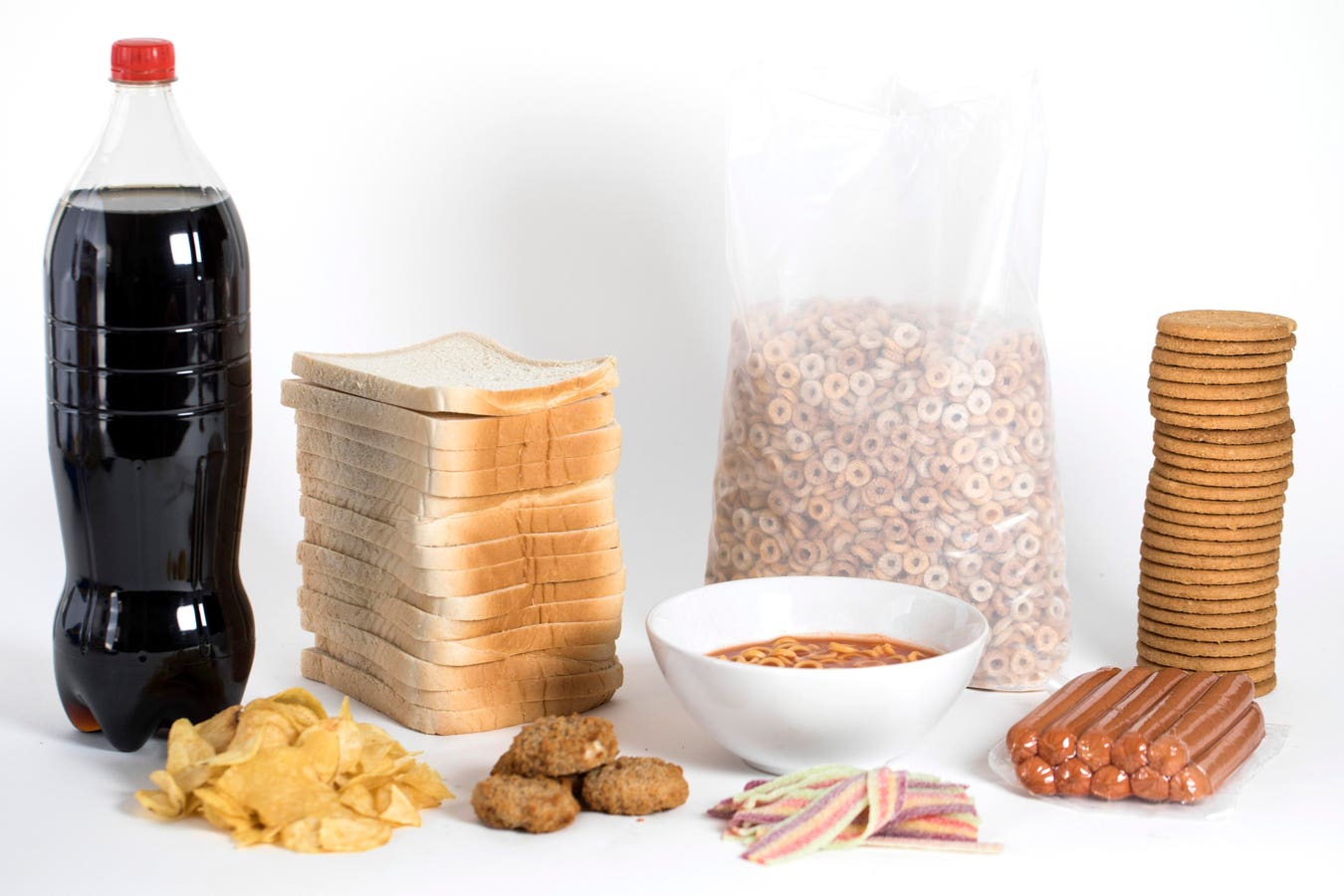LONDON, ENGLAND – FEBRUARY 16: A photo illustration of ‘Ultra Processed’ foods on February 16, 2018 … More
Think twice before reaching for a bag of chips or your favorite sugary beverage. With every 100 grams of ultra-processed foods you consume each day, your risk of developing cardiovascular disease, hypertension, digestive diseases, and cancer increases, according to recent research.
“Ultra-processed foods are characterized by high sugar, high salt, and other non-nutritive components, exhibiting low nutritional density yet high caloric content,” said Xiao Liu in a press release, a cardiologist at the Sun Yat-sen Memorial Hospital of Sun Yat-sen University in Guangzhou, China. “These products may contribute to adverse health outcomes through multiple mechanisms, including but not limited to dysregulation of blood lipid profiles, alterations in gut microbiota composition, promotion of obesity, induction of systemic inflammation, exacerbation of oxidative stress, and impairment of insulin sensitivity.”
Liu and colleagues analyzed 41 studies conducted on ultra-processed foods and their health impacts that had a total of 8,286,940 adult participants from Europe, Asia, the Americas, and Australia. They found that an additional 100 grams of ultra-processed foods consumed each day was associated with a 14.5% higher risk of hypertension, 5.9% greater risk of cardiovascular events, and 1.2% higher risk of developing cancer. The researchers found the strongest association between ultra-processed foods and digestive diseases as consuming 100 grams of it was linked to a 19.5% increased risk of stomach problems.
The most common examples of ultra-processed foods are ready-to-eat meals or frozen foods, sweetened beverages, cooking, mass-produced bread, chips and other savory packaged foods, instant noodles, flavored yogurts, breakfast cereals, and desserts, among others. What makes these products incredibly healthy are the food additives, preservatives, and colorants added during multiple stages of processing.
“Clinicians should clearly explain that ultra-processed foods are typically high in added sugars, sodium, and unhealthy fats while being low in fiber, essential vitamins, and other protective nutrients. This nutritional imbalance contributes to a wide range of adverse health outcomes,” Liu added in the press release. “Emerging evidence suggests a dose-response relationship between ultra-processed food consumption and negative health outcomes—meaning the more ultra-processed foods consumed, the greater the health risk. Therefore, reducing ultra-processed foods intake, even modestly, may offer measurable health benefits.” Liu’s findings were presented at a conference in Singapore earlier this month called ACC Asia 2025 Together.
Another recent study published on May 7, 2025m in the journal Neurology, revealed that people who eat higher quantities of ultra-processed foods like hot dogs, cookies, and breakfast cereal are at a greater risk of suffering from early signs of Parkinson’s disease compared to those who limit their consumption of ultra-processed foods.
“Eating a healthy diet is crucial as it has been associated with a lower risk of neurodegenerative diseases and the dietary choices we make today can significantly influence our brain health in the future,” said study author Xiang Gao in a press release, who is a PhD student at the Institute of Nutrition, Fudan University in Shanghai, China. “There’s growing evidence that diet might influence the development of Parkinson’s disease. Our research shows that eating too much processed food, like sugary sodas and packaged snacks, might be speeding up early signs of Parkinson’s disease.”








